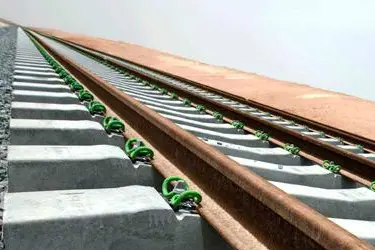PHOTO
The United Arab Emirates plans to issue a new law that will pave the way for a railway passenger network across the country, it was announced on Wednesday.
A railway regulation bill would lead to the establishment and operation of railways, said Sheikh Mohammed bin Rashid Al Maktoum, UAE vice president and prime minister, and ruler of Dubai during a federal cabinet meeting, according a statement posted on Government of Dubai Media Office website.
In March 2017, Thomson Reuters Projects reported that Etihad Rail, the developer and operator of the UAE’s federal rail network, had updated its design to extend the rail project. It said the revised design includes additional freight lines as well as passenger lines that were not included in earlier versions of the network map.
Passenger lines introduced in the new map included a line linking Abu Dhabi’s Musaffah area towards the capital’s airport, and another branching out along the Dubai route towards Meydan.
Currently, Stage 1 of Etihad Rail, which started commercial operations in 2015, transports granulated sulphur from Shah and Habshan to port of Ruwais over a distance of 264 kilometres.
In January 2015, Etihad Railway said in a statement that it has “suspended the tendering process for Stage 2 of the project, while it reviews the most appropriate options for the timing and delivery of this phase”.
The 628km Stage 2 was to connect the railway to Mussafah, to the Gulf ports of Khalifa and Jebel Ali, and to the Saudi and Omani borders.
In March 2011, UAE English language newspaper The National reported that Etihad Rail has suspended plans for a dedicated passenger link between Abu Dhabi and Dubai, and would press on with freight lines instead.
Last month, UAE president Sheikh Khalifa bin Zayed Al Nahyan issued a federal decree restructuring the Etihad Rail board of directors under the chairmanship of Sheikh Dhiyab bin Mohamed bin Zayed Al Nahyan. The new board members appointed for a term of three years include Mattar Mohammed Al Tayer, director-general and chairman of the of Dubai’s Roads and Transport Authority; Falah Al Ahbabi, director-general of the Abu Dhabi Urban Planning Council; Abdullah Salem Al Kathiri, director-general of the Federal Authority for Land and Marine Transport; Mohammed Saeed Al Dhanhani, director of the Fujairah Emiri Diwan; Saeed Rashid Al Yatim, assistant under-secretary for Resources and Budget Affairs at the Ministry of Finance; Arif Obaid Al Dehail, CEO of the Department of Planning and Development – Trakhees; Yousef Saleh Al Suwaijee, chairman of the Sharjah Roads and Transport Authority and Mohammed Ibrahim Al Mell, assistant under-secretary for Housing and Urban Planning at the Ministry of Infrastructure Development.
The 1,200-km Etihad Rail is envisaged to connect all the seven emirates and link the other five countries of the Gulf Cooperation Council. Within the UAE, the network will run from Ghweifat to Abu Dhabi, Dubai and the Northern Emirates with major connecting points in between, including Al Ain and Madinat Zayed, according to the Etihad Rail website.
(Reporting by Anoop Menon, Editing by Michael Fahy)
(anoop.menon@thomsonreuters.com)
Our Standards: The Thomson Reuters Trust Principles
Disclaimer: This article is provided for informational purposes only. The content does not provide tax, legal or investment advice or opinion regarding the suitability, value or profitability of any particular security, portfolio or investment strategy. Read our full disclaimer policy here.
For more data, analytics, tools and news on projects in the Middle East visit the Thomson Reuters Projects portal
© ZAWYA 2018





















